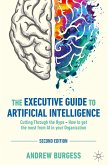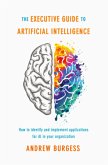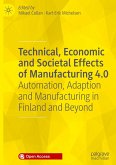The motivation of this book is simple, yet fundamental: No complete understanding of the modern economy is possible without a thorough grounding in the field of innovation as an economic activity.
The book, as its title emphasizes, aims at helping readers to gain a comprehension of two inextricably linked issues: challenging innovation and the future of human work. To this end, the book integrates a triad of topics: innovation as an economic activity, modus operandi of an innovation-driven economy, and the persistent progression toward automation of human jobs.
The main message conveyed by this book is that a creative economy will converge to an economy governed by smart machines aka robots, but will produce benefits if addressed in a rational manner.
As to the salient features of this book,
Accessibility: Accessible to readers with only cursory knowledge (if any) in economicsStyle: Adherence to a discursive, non-mathematical styleBrevity: Covers material in a succinct, easily understandable manner, drawing upon real world examplesAppendices: Each chapter is supplemented with appendices that elaborate upon pertinent real world examples and applicationsSelf-contained: All the key concepts are defined and exemplified within the bookApplicability: Uses examples that resonate with a wide audience of readers concerned about the advance of robotsNon-mathematical diagrams: Provides accessible and readily understandable figures/graphsProtective stance: Contains a rational response to the march of the robots which is useful for workers of all ages
The book, as its title emphasizes, aims at helping readers to gain a comprehension of two inextricably linked issues: challenging innovation and the future of human work. To this end, the book integrates a triad of topics: innovation as an economic activity, modus operandi of an innovation-driven economy, and the persistent progression toward automation of human jobs.
The main message conveyed by this book is that a creative economy will converge to an economy governed by smart machines aka robots, but will produce benefits if addressed in a rational manner.
As to the salient features of this book,
Accessibility: Accessible to readers with only cursory knowledge (if any) in economicsStyle: Adherence to a discursive, non-mathematical styleBrevity: Covers material in a succinct, easily understandable manner, drawing upon real world examplesAppendices: Each chapter is supplemented with appendices that elaborate upon pertinent real world examples and applicationsSelf-contained: All the key concepts are defined and exemplified within the bookApplicability: Uses examples that resonate with a wide audience of readers concerned about the advance of robotsNon-mathematical diagrams: Provides accessible and readily understandable figures/graphsProtective stance: Contains a rational response to the march of the robots which is useful for workers of all ages








